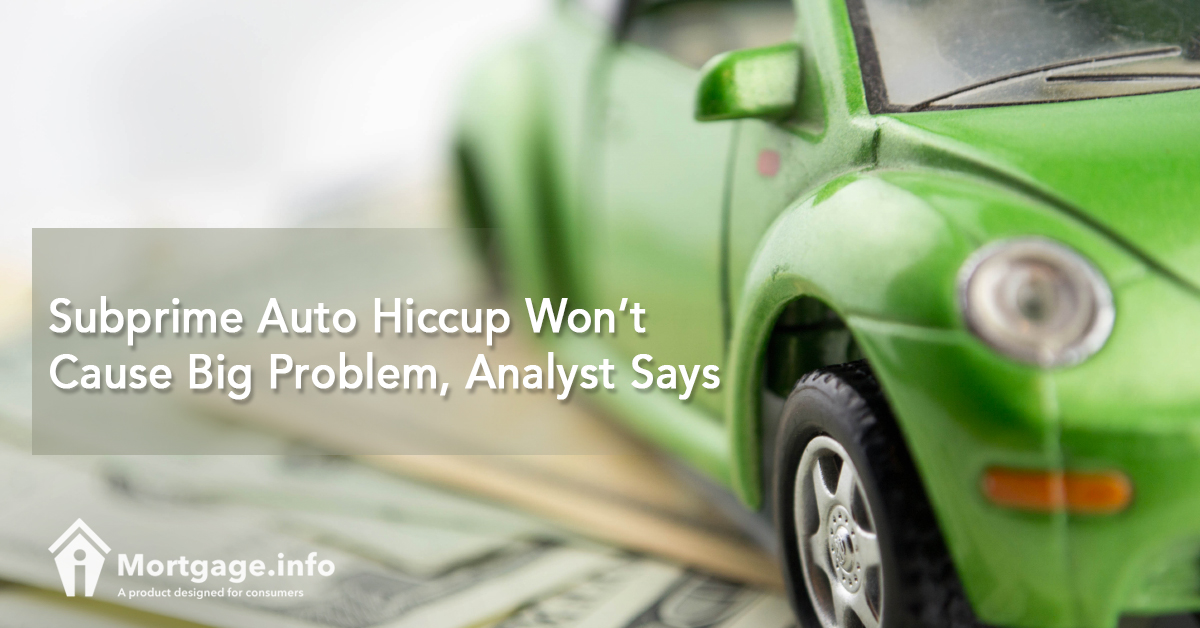“Subprime auto is so small relative to the US debt market it won’t make a difference to the system,” JPMorgan Chase CEO Jamie Dimon said during an event early April.
However, Dimon does not deny that there is currently a problem in the U.S. Subprime Auto Loan Market. This present issue about a new subprime bubble coming its way has pressed major concern. The last subprime crisis brought the U.S. to recession in 2008-2009 and many fear that the present subprime auto loan market crisis can very well be on its way.
Federal Reserve Bank of New York’s Data shows that the whole auto loan market, where the subprime auto falls into, only makes up 9% of the Total Debt Balance. The mortgage industry, however, is occupying a 67% of the whole U.S. Debt Market. Car loans don’t make up a big chunk in the lending industry.
Debt Market, Mortgage Sector May Not Take Serious Hit
The car loan industry may have a problem coming, but it won’t bring down the overall economy with it. Dimon said, “It will cause issues somewhere but it won’t be a problem.”
The rising subprime auto delinquencies still present a risk to the economy. However, Dimon and other analysts agree on one thing, this does not mean a pending economic downturn.
Dimon gave the audience a piece of his brain during a town hall event put together by JPMorgan Chase and Yahoo Finance.
Housing Delinquency Levels Remain Stable Despite a Slight Rise
The American Bankers Association’s (ABA) Consumer Credit Delinquency Bulletin show a slight increase in the number of delinquencies which are housing-related. Despite this, ABA Chief Economist James Chessen stated that delinquency levels remain stable and still low. He said, “As the housing market continues to improve, so do home-related delinquencies.”
Chesser stated, “With home prices on the rise and borrowers better positioned to honor their debts, we expect that home-related delinquencies will continue their gradual downward trajectory.”
The steady job growth and the increase in wages are seen to cause the continuous downward trend. “Lower taxes and infrastructure spending would add fuel to the economic expansion, pushing wages higher and helping to ease consumers’ financial worries,” Chessen said.
In the end, the consumers’ desire in keeping up with their debts and managing their finances well will greatly help the lending market recover and stay healthy.

